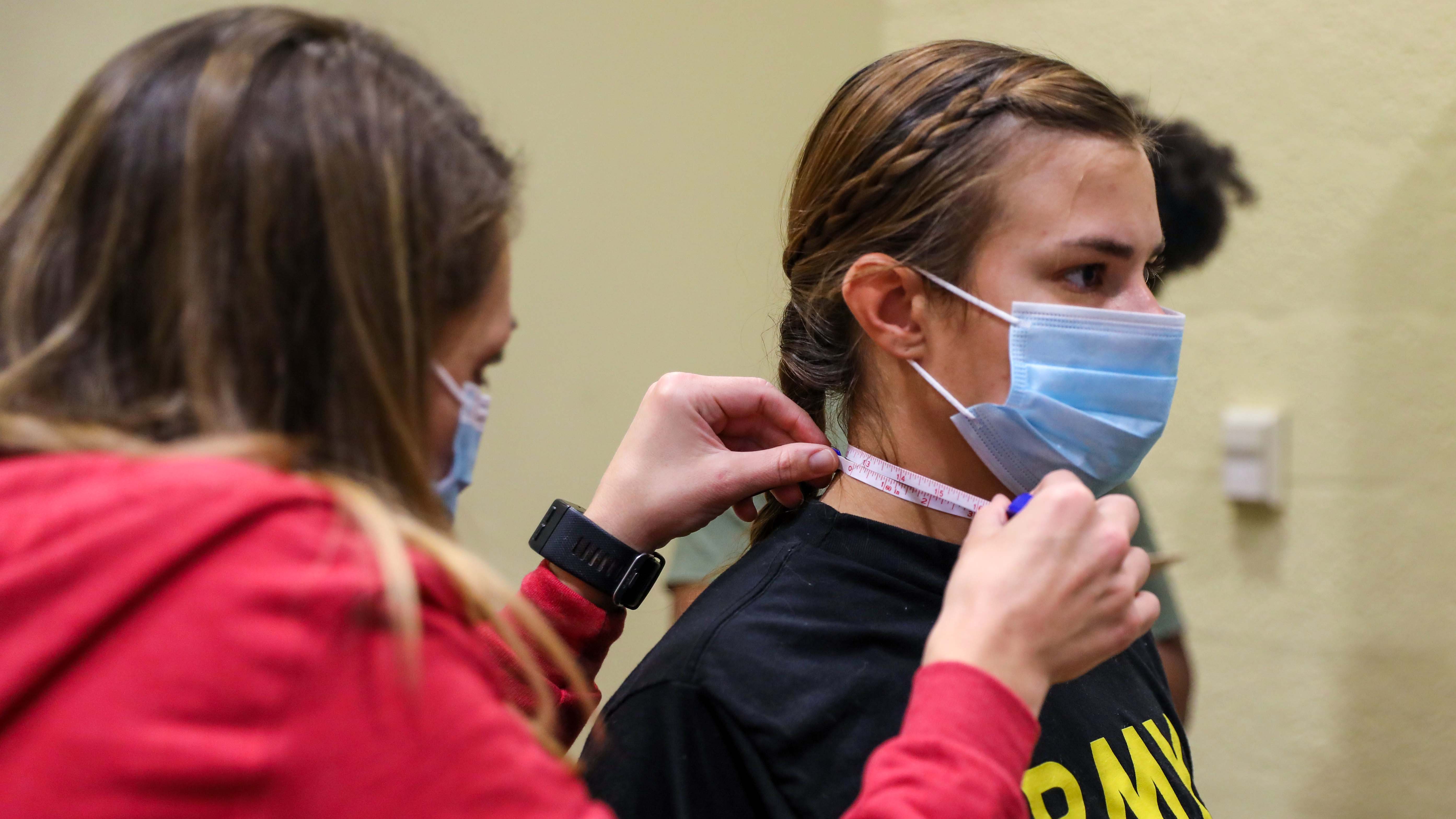Army Revamps Tape Test
Army Revamps Tape Test

The Army is changing its tape test as the service refines how it measures soldiers’ body fat and fitness, the service announced.
“For years, we have been committed to reducing body fat across the force,” Sgt. Maj. of the Army Michael Grinston said in an Army news release. “It’s one of the driving factors in supporting the Holistic Health and Fitness program, as well as one of the reasons to request a study on the Army Body Composition Program.”
The new tape test will require tape testing for all soldiers, who will be measured around the waist, according to the Army directive announced June 12. Previously, the Army for decades has determined soldiers’ body fat by measuring a man’s neck and abdomen or a woman’s neck, waist and hips.
Active-duty soldiers will be taped twice a year, and reservists will be taped once a year. The changes “will yield more consistent and accurate estimates of soldiers’ body fat and fitness,” according to the news release.
These revisions come after a body composition study from the Army Research Institute of Environmental Medicine and the Army’s Center for Initial Military Training. Data collected during 2021 and 2022 revealed that soldiers with lower body fat and better overall health fare better on the Army Combat Fitness Test than soldiers with a higher body fat percentage, who are more prone to musculoskeletal injuries.
Though the revamped tape test will begin immediately, soldiers can use the previous tape test method for the next year, according to the directive. The directive also offers soldiers the opportunity to use another body fat assessment if they fail the tape test.
“Soldiers who fail the circumference-based tape methods will be flagged, but they may request a supplemental body fat assessment if the means for such testing is reasonably available,” according to the release.
“The Army is continuously refining programs through research and soldier feedback to improve readiness and lethality,” said Grinston.
The new policy ensures that soldiers’ fitness is evaluated more holistically. “The Army wants to ensure it accounts for the whole soldier concept,” said Maj. Serena Staples, health promotion policy officer for the Army Resilience Directorate. “The new policy is intended to give soldiers a more accurate assessment of their health and fitness and to increase their knowledge of available health resources.”
Read the directive here.

